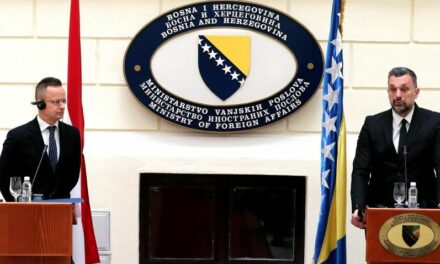A register of perpetrators of pedophile crimes will be created. The change may also prevent pedophiles from holding positions where they may meet children.
On Tuesday, the Parliament adopted the proposal on stricter action against pedophile offenders and the amendment of certain laws to protect children with 157 yes votes and one no vote.
By entering the customer portal, you can search for a specific name in the register, the parent or other relative will be entitled to query the data after indicating the basis of the data request.
Those who have previously committed a crime are also included in the database. The data can only be used to protect children.
The change also tightens the criminal code: the perpetrators of certain classified cases of child pornography can receive up to 20 years, while they cannot be released on parole.
Such a classified case is, for example, when the crime is committed using violence against a person younger than 12 years of age. In addition to child pornography committed by abuse of power, the law will also include other classified cases: for example, if it is committed as an official, if it is committed using torture or violence, or if it is committed as a special recidivist. The most serious pedophile crimes do not currently have a statute of limitations. In milder cases, however, the statute of limitations starts from the victim's age of 21 instead of the current age of 18.
A new qualified case of harassment will be if the crime is committed by a person who has reached the age of 18 to the detriment of a child.
Until now, pedophiles have been banned from employment in healthcare or education. It is a change that the number of these jobs is being expanded to include jobs related to spending free time that can be visited by children. For example, they may not work at the beach, amusement park, zoo, or sports club, but these offenders may not establish a government service relationship or assume a political leadership position.
The legislation also formulates regulations regarding sex education sessions at school: they cannot be aimed at gender reassignment or the promotion of homosexuality.
Apart from the teachers of the institution, only those people and organizations can hold or organize such sessions in the institutions, who are listed in an official, continuously updated register. The detailed rules for this are developed by the Minister of Human Resources in a decree. Violation of the rules imposes liability for violation on both the head of the institution and the person holding the session.
The law also states that the state also protects children's right to self-identity according to their birth gender in the child protection system.
It also states that it is forbidden to make available to young people under the age of eighteen pornographic content, the self-serving presentation of sexuality, as well as anything that promotes deviation from the self-identity corresponding to the sex at birth, its change, or homosexuality. The same rule applies to advertisements.
In the future, TV stations will only be able to recommend films and programs of this length to those over the age of eighteen, and the Media Council will be obliged to request the action of the member state under whose jurisdiction the media service provider that violates the rule falls.
Four opposition parties also boycotted Tuesday's parliamentary polls
DK, MSZP, Párbeszéd and LMP also boycotted Tuesday's parliamentary votes.
At the joint press conference of the four opposition parties and Momentum, which was held in front of the Parliament but was also broadcast online, DK's Gergely Arató said that this was a "day of shame" in the life of the Parliament. They are voting on a series of proposals that do not comply with the rules of parliamentary democracy, basic human rights, and the rule of law, while the manner in which they are presented and their content are both outrageous, he said. The submitters connect laws that have nothing to do with each other, he stated. They connect the fight against pedophilia with the stigmatization of the gay community.
MTI / hirado.hu
Photo: Illustration / maszol.ro











